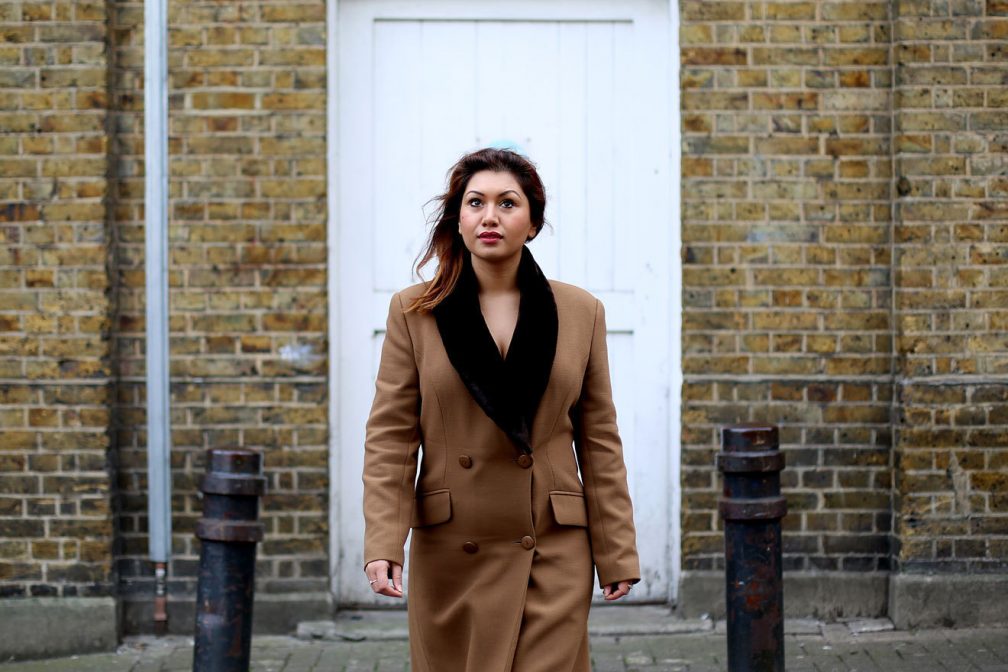 Music
Music
Impact: DEBONAIR
No dancefloor left unscorched
Impact is a new series dedicated to profiling raw talent that's about to turn dance music on its head. Next up: DEBONAIR
London-based selector Debi Ghose chose her DEBONAIR moniker mostly for the pun, but the word is also a relevant description of her NTS radio transmissions. She uses her bi-weekly slot on the Dalston station to stylishly traverse all manner of genres and BPMs with an unwavering sense of assurance and charm.
Then there are her live performances, for promoters like Hannah Holland, Clock Strikes 13, Bloc. and Lobster Theremin, which fizz with the kind of thing that sounds/feels so good on the floor: classic house, springloaded techno, Italo and EBM.
Like many DJs who don’t produce, Debi worked in her local record store growing up. While not exactly Phonica, Hardwax or Rubadub, Fopp in Leamington Spa provided her with a constant stream of new releases to devour, encouraging her already burning passion for music and expanding her aural horizons.
A Medical Microbiology course at Warwick University proved to be the catalyst that would turn her passion for music into a burgeoning DJ and radio career. Finding the campus to be something of a cultural deadzone, Debi seized the opportunity to cultivate a scene by herself, landing a spot on the University’s student radio station and soon amassing a strong listenership.
After stints in production at the BBC's Radio 4 and 6 Music, Debi heard of a new independent station opening in East London called NTS. She joined from the start, and was an instrumental player in establishing the station into one of the most cohesive representations of the extensive range of music the capital (and beyond) has to offer.
She left her management role at NTS a few years ago to focus on her own musical pursuits, but still holds down a show that brims with eclecticism and energy. It's also reaching cult status on the station, with her audience tuning in to her cuts that are weird, wonderful and/or pumpin' (key influences are Veronica Vasicka and the World Unknown and Body Hammer parties). And her rep as an on-point DJ is ever growing, with few of London's underground-leaning dancefloors left unscorched by one of her sets. We’d wager few people can mix Nidia Minaj into Cocteau Twins so successfully.
Read an interview with DEBONAIR and listen to her Impact mix below.
How influential was your work at BBC 6 Music in developing your skills on radio?
It was greatly influential. I worked on the Shaun Keaveny show to start off with; he's an amazing presenter. He’s really funny and quick-witted on air, and has such a warm and distinct personality. There was no script, that’s him completely. Going in there was quite an eye-opener about how important it was to respond to the live environment and be personable with your audience even though you can't see them.
The rise of independent radio stations has been massive over the past few years, with the likes of NTS, Radar and Berlin Community Radio starting up. How important a role do you think they play in the scene?
I think it’s hugely important. More and more of these stations are popping up because there's demand for it. People want to listen, and people want a platform to put their sound out there.
It's a way to connect with music that is coming up that you don't know about at the moment. If you're not in the same city as your favourite DJ or if you live somewhere quite remote, it's a great way of staying very connected with what's happening in music, even if you don't have the ability to see many DJs, or don't have the need or want to.
It's also really important for music that might not find a home in clubs or might not be getting booked or promoted at the time. I love playing in clubs but there's also a lot of music that I love to play on the radio that wouldn't be suitable for one of my sets.


